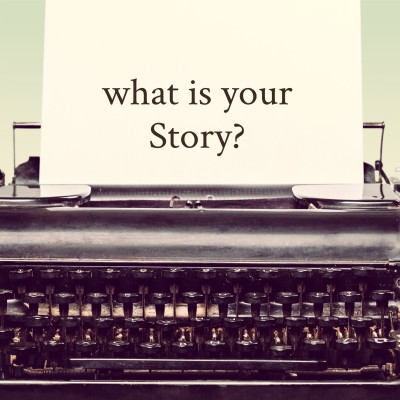
The connection between stories and empathy may not be obvious. It’s been said that a picture is worth a thousand words. But maybe words are worth our attention, too. Consider Philip Pullman’s comment, “After nourishment, shelter and companionship, stories are the thing we need most in the world.” Stories connect us. They help define who we are. Stories make us care and, turns out, science is helping to explain why stories have the power to change our brains.
Stories Create Empathy
When you make a point, engage an audience, or even promote your business, a story captures attention in a way that simple facts can’t. To explain, I turned to Paul Zak whose research has uncovered the link between stories and empathy. He says stories engage more of the brain and stimulate oxytocin production. Oxytocin is a hormone and neurotransmitter produced in the brain and blood that has been called the love and connection hormone. When oxytocin levels increase we feel safe and more compassionate toward others, resulting in a more empathetic social connection.
I’ve seen this first hand in my own work. When I tell a story about how a very old person responded in a Compassionate Touch® session people are moved. When I simply point out the benefits of this approach, they understand on an intellectual level but that’s all. Stories reach our hearts and souls and that old person “comes alive” to the listener.
Mary’s Story
There she was, this wisp of a woman in her wheelchair, alone in this big empty dining room. Her eyes had a far-away look and every few seconds she sobbed. Was she in pain? She didn’t seem to notice when I spoke to her. I simply sat quietly with her. Saying her name, holding her hand and stroking her arm, she looked at me for the first time. She accepted my touch but the crying jags continued as she gripped my hand. When time for me to go, she said in a weak, but clear voice something that shook me to the core. “I’m so lonely”.
The next day I saw her again. She lay in bed, so tiny she was barely visible under the covers. She stared at the ceiling, crying. I took in the scene as I stood the doorway to her room. Not one picture, flower, card or anything else personal was found. Who was this woman? All I knew was the moment. “Hi Mary, its Ann. Can I sit next to you on your bed?” She actually nodded yes! I massaged her hands and softly stroked her hair and cheek, a touch I often use to comfort people with advanced conditions. Still, she cried every few minutes. But she reached up and touched my cheek and even looked me in the eye. I stayed present in her little world. At one point she took my hand to her lips, kissed it and said I love you.
It was wonderful to see this woman go from profound loneliness to enjoying a relationship in her own way. As I was leaving, a nurse came in and said “Hi Mary” quite casually like she’s probably done a thousand times. And Mary, in a clear voice said Hi! The nurse clearly was amazed. I walked away with a smile in my heart because
Capture your own story.
We create a story every time we touch someone. True, some are more memorable than others but many are worth capturing—and sharing. But if you’re like me the details of a story fade quickly unless we find a way to resurrect them. Here’s a tip. Dedicate a notebook or journal to jot down your own stories. It doesn’t have to be formal, however quick notes will do. I have carried a journal in my that goes with me into homes and communities. Some stories are just a line or two. A glimpse through the pages brings back memories of people who have help shaped my work, blessed my life, and opened my heart to greater empathy. So share your own stories. They bring to life the power and validity of your service in the world. We’ll all be listening!
Thank you very much for the tips and advice. Hope everybody will find the tips helpful.